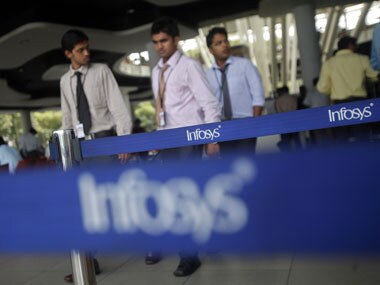Infosys served The Economic Times, The Times of India and The Financial Express with defamation notices yesterday “ …Infosys claimed damages of Rs 2,000 crore for loss and reputation and goodwill due to circulation of defamatory articles,” says The Hindu. “The three newspapers — The Economic Times, The Times of India and The Financial Express — have been given 24 hours to remove such articles from their websites and other media, and issue an unconditional apology,” The Hindu article went on to add. [caption id=“attachment_1564315” align=“alignleft” width=“380”]  Representational image. Reuters[/caption] Within minutes of the news breaking, social media churned out opinions on Infosys’ move. Some thought Infosys was ill-advised, others thought that Infosys was acting like a bully, some went on to complain about how Infosys couldn’t handle criticism. By and large, the suggestion was that Infosys should shut up and get on with it. Not a single comment on the allegedly offending articles in the three papers and what the articles contained. By the end of today, we will know whether or not the publications in question have complied with the conditions of the notice; in a few days we will know the Infosys reaction. It’s a battle that’s almost been dubbed ‘The free press Versus Infosys.’ This is not about a free press. This issue is about alleged defamation. A free press does not give the media the license to say anything at all about any issue, any company or any individual. A free press does not allow a media product to defame anyone. That’s what the legal battle will be about. Much as defamation suits protect those who are defamed, they are also protectors and builders of the reputations of news products. The pronouncement of a judgment on a defamation suit, if it goes in favour of the news product concerned, immediately increases the credibility and reputation of the product — and diminishes the reputation and the credibility of the litigant. In a way, defamation laws serve to operate as a quality check on news products, forcing journalists and editors to go through due process to ensure that there is nothing defamatory in any of the content that they produce. That’s why we need more defamation suits to be filed, argued in the courts and decided by the courts and stop accusing every single defamation suit as a bullying tactic. Sadly, thanks to the slow speed at which courts in India operate, defamation suits could be, and are, used to bully and harass smaller media products. That’s what news media products should be fighting for — quick disposal of all defamation suits, not the absence of the suits themselves.
Thanks to the slow speed at which courts in India operate, defamation suits could be, and are, used to bully and harass smaller media products.
Anant Rangaswami was, until recently, the editor of Campaign India magazine, of which Anant was also the founding editor. Campaign India is now arguably India's most respected publication in the advertising and media space. Anant has over 20 years experience in media and advertising. He began in Madras, for STAR TV, moving on as Regional Manager, South for Sony’s SET and finally as Chief Manager at BCCL’s Times Television and Times FM. He then moved to advertising, rising to the post of Associate Vice President at TBWA India. Anant then made the leap into journalism, taking over as editor of what is now Campaign India's competitive publication, Impact. Anant teaches regularly and is a prolific blogger and author of Watching from the sidelines. see more


)

)
)
)
)
)
)
)
)



